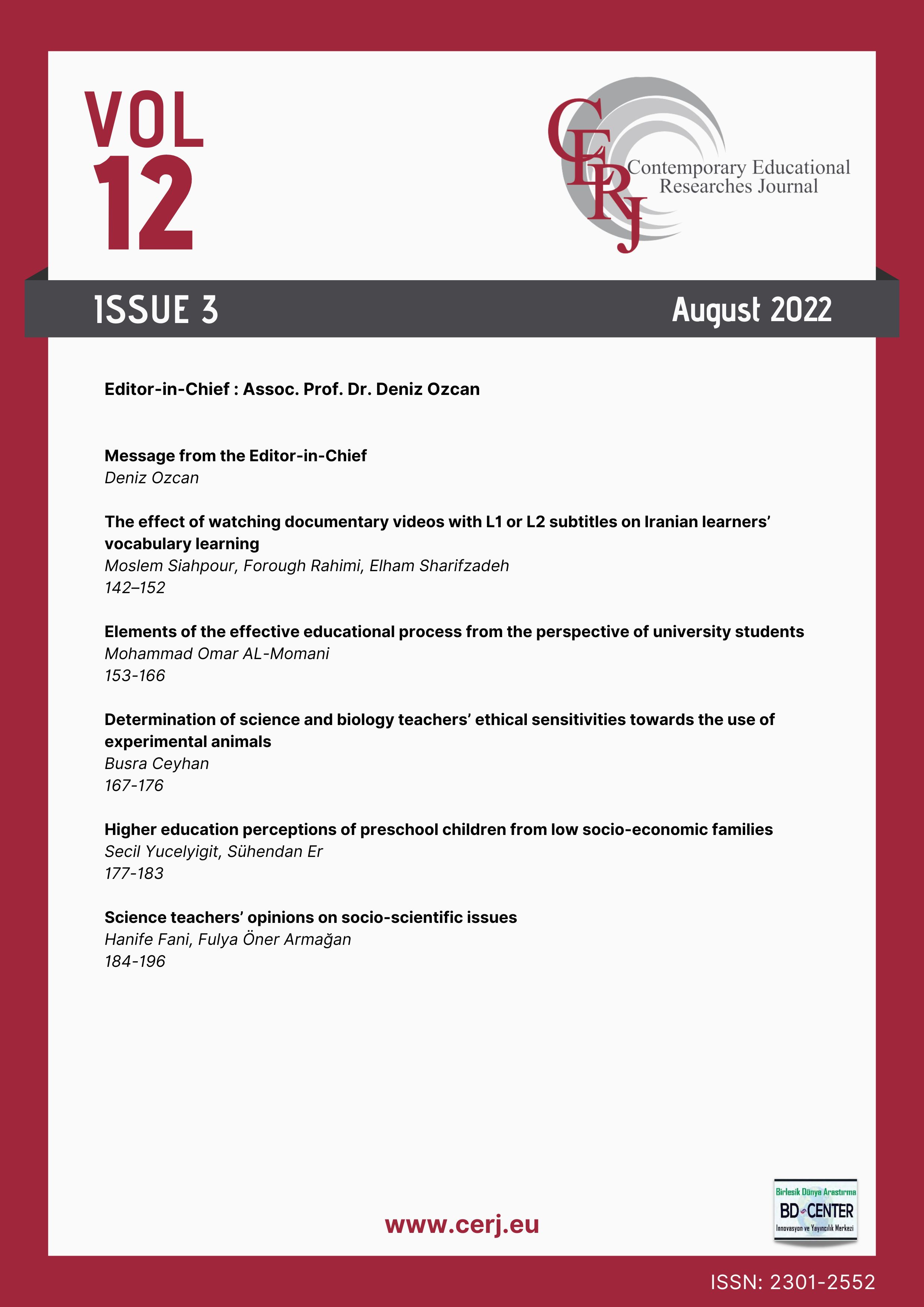Higher education perceptions of preschool children from low socio-economic families
Main Article Content
Abstract
This study aimed to determine how higher education perceptions of preschool children from low socio-economic families differ after a planned and structured visit to a university campus. The study used phenomenological research design and 29 children (48-60 months old) were selected with purposive sampling method from a low income district public preschool in Ankara. Data were collected through interviews with children and their drawings. Children were asked three questions about higher education in pre-interview and after their visit to the university campus, in the post-interview they were asked the same questions. The interview results and children’s drawings were analysed by content analysis. The results indicated that participating in a set of activities at the university, children’s understanding of higher education and perception of university changed considerably. It is suggested that universities can carry out activities to raise awareness of children and their families in low-income district schools.
Keywords: higher education, low-socio-economic level, preschool children, perception, university
Downloads
Article Details

This work is licensed under a Creative Commons Attribution 4.0 International License.
Authors who publish with this journal agree to the following terms:
- Authors retain copyright and grant the journal right of first publication with the work simultaneously licensed under a Creative Commons Attribution License that allows others to share the work with an acknowledgement of the work's authorship and initial publication in this journal.
- Authors are able to enter into separate, additional contractual arrangements for the non-exclusive distribution of the journal's published version of the work (e.g., post it to an institutional repository or publish it in a book), with an acknowledgement of its initial publication in this journal.
- Authors are permitted and encouraged to post their work online (e.g., in institutional repositories or on their website) prior to and during the submission process, as it can lead to productive exchanges, as well as earlier and greater citation of published work (See The Effect of Open Access).
